The 50 most important PC games of all time
They changed how we make games, how we play games, and they changed us.
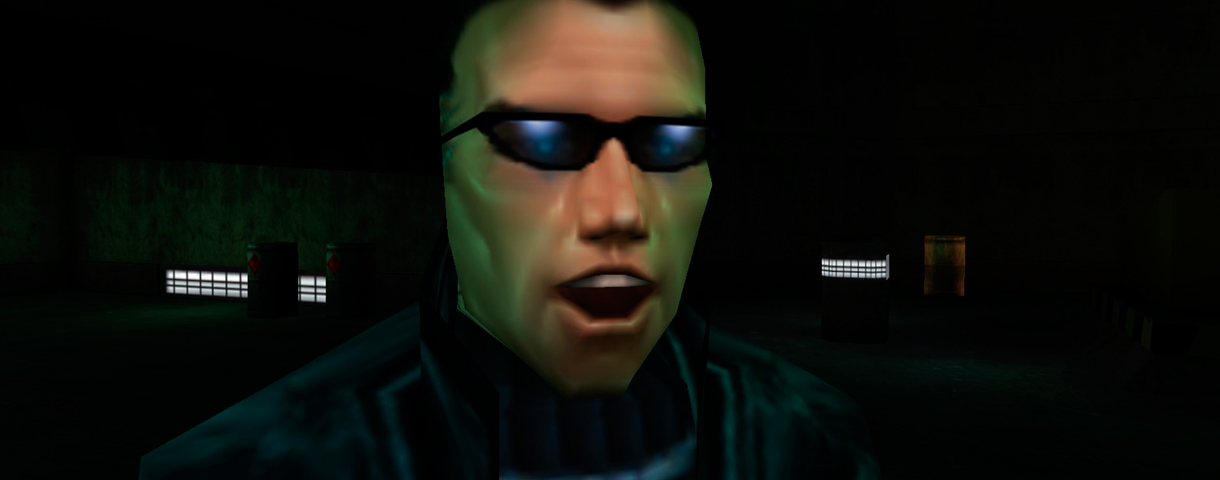
Deus Ex
Released: June 2000 | Developer: Ion Storm
Why it's important: It’s Deus Ex. Player freedom! Adventure and RPG and shooter wrapped up into one little package! Everything that was good about PC gaming in the year 2000 was here in this ugly yet beautiful conspiracy thriller that has arguably yet to be surpassed.
Deus Ex was the first game that made me realise how powerful games could be as storytelling tools. Not through cut-scenes or dialogue, but through player actions. How I infiltrated Liberty Island was unique to me: a result of the game's deep, rewarding systems and intricate maps. The wealth of options in Deus Ex, in both how you steer the story and how you tackle its objectives, makes it one of the most compelling, engaging, intelligent games that's ever graced our platform.
Even though the visuals have aged horribly, it's still very playable today. There's an internet joke that whenever someone mentions Deus Ex, someone will reinstall it. And it's true, because as I write this I have it downloading on Steam. You probably do too. It's amazing, and sad in a way, that 16 years later, few games can match Deus Ex's richness, complexity, and freedom. — Andy Kelly
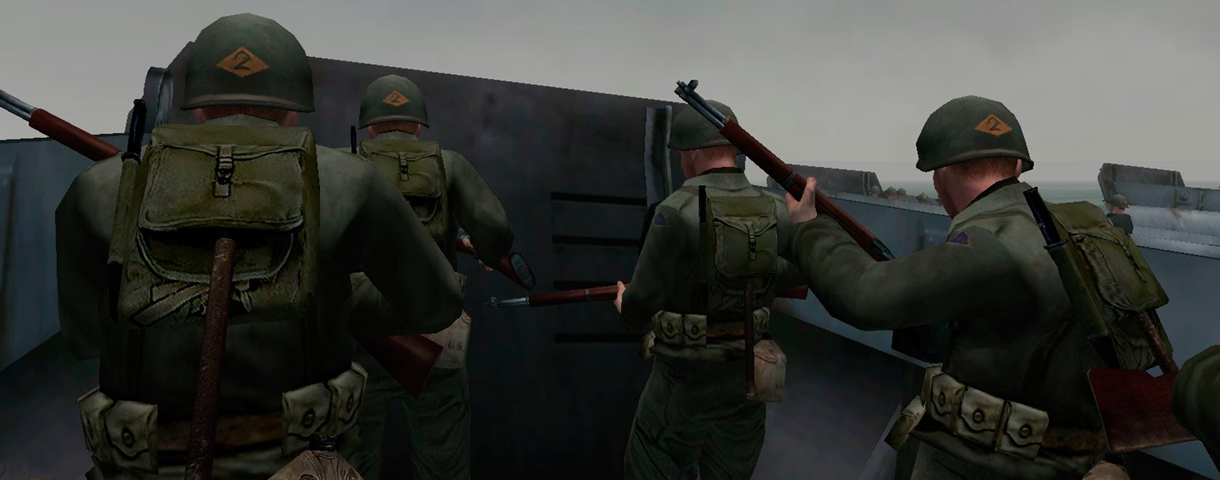
Medal of Honor: Allied Assault
Released: January 2002 | Developer: EA Games
Why it's important: As well as proving that games were finally ready to take on real-world conflicts with aplomb, its scripting (particularly the Normandy mission) paved the way for the spectacle shooters that still dominate the industry.
This was the first FPS I played where I truly bought into the drama of what was going on around me, thanks to the game's Hollywood-infused but grim, detailed depiction of WWII. The comparison everyone drew at the time was Saving Private Ryan, and that Normandy mission captured the atmosphere of that film perfectly—the sight of watching waves of soldiers being mowed down instantly by German machine guns while sprinting between bits of cover was just jaw-dropping. It was the quality of the sound design, the feeling that so much else was going on in the environment outside of the player's objectives—a staggering, ambitious piece of work.
The biggest gaming news, reviews and hardware deals
Keep up to date with the most important stories and the best deals, as picked by the PC Gamer team.
It was a showcase of how far 3D shooters had come on PC. My dad's PC at the time wasn't powerful enough handle Allied Assault, so I completed the whole thing at a friend's house over the weekend, and I remember both of us reloading checkpoints so we could play through the same moments again and again. The template for almost all modern shooter campaigns was set here by 2015, Inc, who of course went on to form Call of Duty developer Infinity Ward. While the scripted shooter campaign might seem a little tired by today's standards, when Allied Assault was released there was absolutely nothing like it. – Samuel Roberts
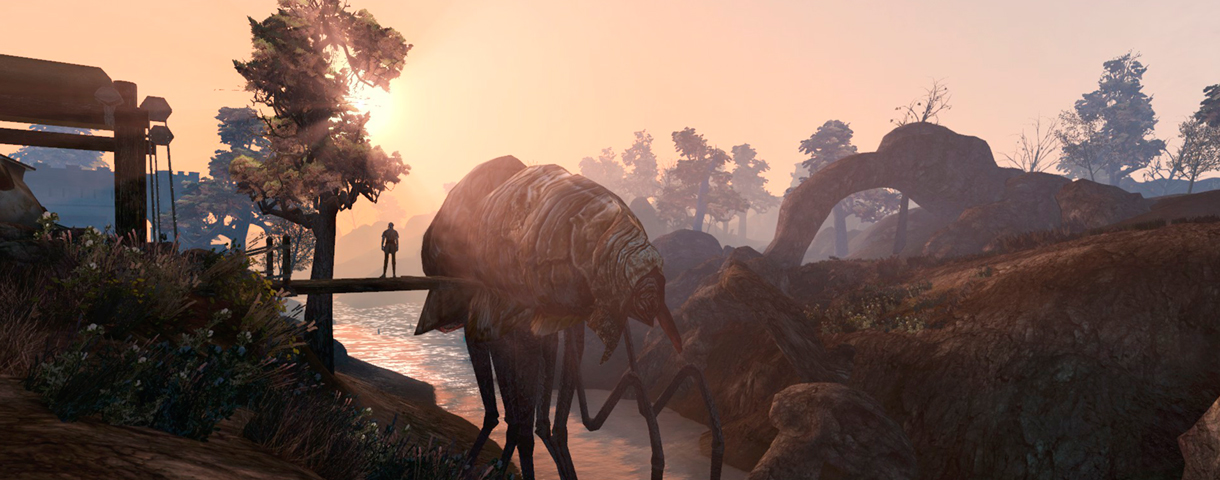
The Elder Scrolls III: Morrowind
Released: May 2002 | Developer: Bethesda Game Studios
Why it's important: One of the first big steps towards RPGs as a dominant genre in the new millennium, bringing us into a true 3D world of exploration and discovery eye-watering fidelity.
The Elder Scrolls formula is well-established by now: a ridiculous amount of adventuring crammed into a sprawling fantasy world, a broad, loosely-knit plot that's just as easily ignored as followed, and you, the hero, a manifestation of a great, ancient muckety-muck, reborn to save a particular slice of Tamriel from the clutches of this evil or that. As open-world RPGs go, you won't find many better. But the machine didn't always run so smoothly. It took the series some time to find its way. Arena, the first game, made a relatively small splash, and the sequel, Daggerfall, was riddled with bugs and far too big and unfocused for its own good.
Then came The Elder Scrolls III: Morrowind.
Morrowind reflects a time when Bethesda was more adventurous in its role-playing explorations, probably because it had fewer expectations piled upon it. Oblivion and Skyrim are fairly conventional as RPG settings go—Tolkien Lite and Vikings Gone Wild, respectively—but Morrowind is something unique. The island of Vvardenfell is lusciously alien, with giant mushroom manses, zombies with scooped-out faces, beautifully bizarre wildlife, and Dwemer fortresses and Dunmer Strongholds that promise no end of mystery and secrets. It's a world unlike any other, and for all that I like the later games in the franchise—and I like them very, very much—none have matched the bold creativity of Morrowind.
Everything before this was iteration; everything after has been evolution.
But the real reason it worked? Because it worked. Morrowind's landmass is significantly smaller than that of Daggerfall, which let Bethesda create the deep and detailed world that had eluded them in the first two games, while simultaneously dodging the worst of the technical problems that made them so infuriating. It wasn't perfect, but the mere fact that it worked out of the box was cause for celebration. Capping off the experience, Morrowind also introduced the Elder Scrolls Construction Set, putting the ability to modify and create content into the hands of players—a huge deal then and now.
Everything before this was iteration; everything after has been evolution. But Morrowind was the tipping point—the nexus between technology and design that made The Elder Scrolls, and Fallout, and hey, even Bethesda, everything that they are today. —Andy Chalk
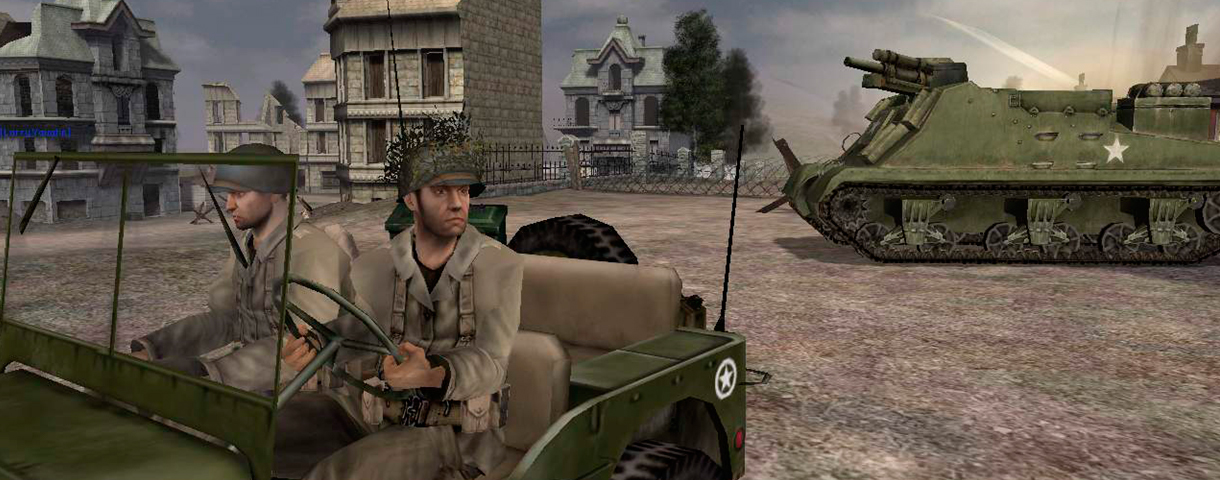
Battlefield 1942
Released: September 2002 | Developer: DICE
Why it's important: The first true demonstration of large-scale multiplayer warfare with the oomph of real world engagements, but the feel and satisfaction of up-close deathmatching. Others like Planetside had offered the battlefield, but Battlefield brought the war.
Battlefield 1942 was the first FPS I experienced where I could see the richness that I enjoy about RPGs finding its way into an FPS. The fact that they had put into one well-balanced game, a lot of the diverse strategies with diverse gear that I loved in a good RTS, made me hopeful for other blended play styles. Once I played BF1942, it was clear that a whole category of games, which I had generally passed over, was opening up in a way that would draw in players from other gameplay archetypes. — Richard Garriott
———
In 2002, EA released two World War II games that changed first-person shooters forever. Medal of Honor: Allied Assault set the template for cinematic story-driven shooters, still guiding the designers of the latest Call of Duty. But it was Battlefield 1942 that unlocked the potential of multiplayer matches with massive team battles in world-scale maps. Berlin and Stalingrad were stormed a million times over as my grades suffered.
Before BF1942, multiplayer shooters were constrained to the arena-based duels of Quake and single-objective team missions of Counter-Strike. Tribes 2 gave us a taste of what it was like to pit 64 players against each other in large open environments, but it was DICE’s attention to detail in building a deep historical shooter that captured the attention and occupied the sleepless nights of PC gamers. We were awed by the scale of the maps—recreations of vast deserts, steep mountainscapes, and entire islands that felt like the actual stomping grounds of Patton, Zhukov, and Rommel. We were quickly sold on the new Conquest control-point capture mode, which reinforced teamwork and communication unlike any mode before it. And we were enamored with the vehicle physics, which let us skillfully dogfight Zeroes above aircraft carriers and drop a squad of soldiers into enemy territory from a B-17 Flying Fortress. Mash ‘9’ to deploy that parachute at the last minute!
BF1942 is also notable for its industrious mod community, which built amazing total conversions for the game without official mod support. Some of these placed players in entirely new combat theaters and eras, while others tapped into the physics engine to enable offbeat in-game stuntwork. An official SDK later bore mods like the venerated Desert Combat, which laid the foundation for DICE’s own modern combat sequel, Battlefield 2. — Norman Chan
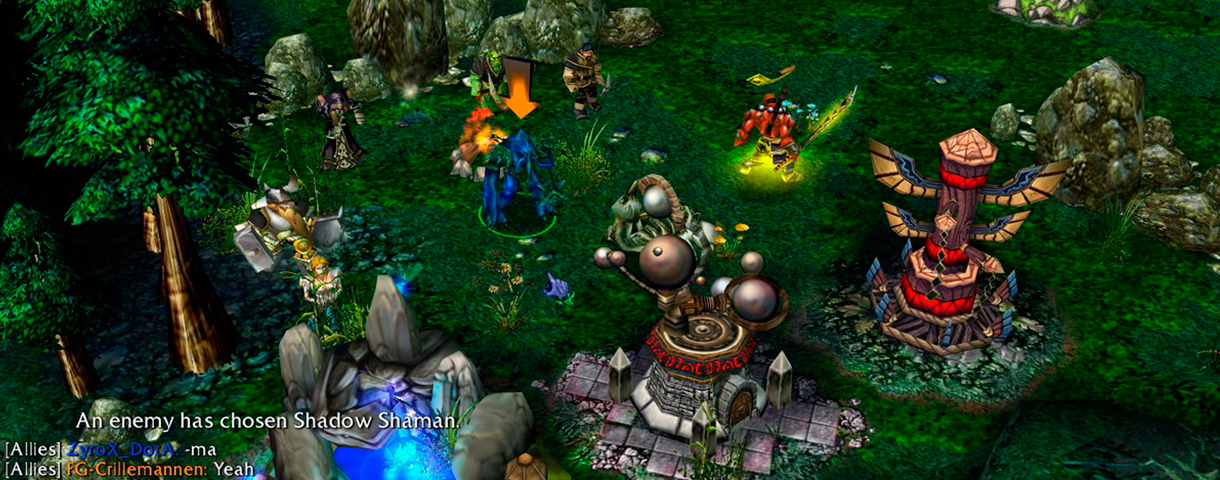
DotA
Released: 2003 | Developer: Icefrog, Steve Feak, Eul; the Internet
Why it's important: The start of the MOBA/ARTS/etc genre that currently dominates the industry. Another great example of a fan project showing the experts how it’s done.
There are successful mods, and then there's DotA. In terms of the lasting impact on the industry made by a handful of talented amateurs, only Counter-Strike comes close to the incredible impact of Defence of the Ancients and its predecessor, the StarCraft map Aeon of Strife.
DotA established a new form of competitive play, combining the interdependencies of class-based FPSs like Team Fortress with the strategic depth of the traditional RTS. It was unique for showcasing many different types of skill all at once: players could be technically good, demonstrating fast reactions and great spatial awareness. They could be strategically wise, able to manipulate the map to their team's advantage. Or they could be simply good at working with others, building victory through leadership—this personal dimension has always been DotA's secret sauce.
DotA's design made it relatively easy to bolt on new ideas: there's always space for a new hero, a new item, a new dimension to the map, which meant the game was in a perfect position to grow organically. As such, DotA evolved more like a traditional physical sport than a digital game: different communities added different rules and features, before DotA All-Stars—and eventually Dota 2—pulled everything together and established an official agreed-upon way to play.
That modular nature would have other consequences, too. S2 and later Riot Games realised that parts of the game could be split off and sold separately, and this led to the notion of heroes that you bought or unlocked through play—and with it, a major part of the free-to-play movement.
DotA gave way to DotA-likes, and DotA-likes became MOBAs, and MOBAs are now the world's most popular form of videogame, a truly international phenomenon. That isn't bad for a WarCraft III map. — Chris Thursten

Wes has been covering games and hardware for more than 10 years, first at tech sites like The Wirecutter and Tested before joining the PC Gamer team in 2014. Wes plays a little bit of everything, but he'll always jump at the chance to cover emulation and Japanese games.
When he's not obsessively optimizing and re-optimizing a tangle of conveyor belts in Satisfactory (it's really becoming a problem), he's probably playing a 20-year-old Final Fantasy or some opaque ASCII roguelike. With a focus on writing and editing features, he seeks out personal stories and in-depth histories from the corners of PC gaming and its niche communities. 50% pizza by volume (deep dish, to be specific).

